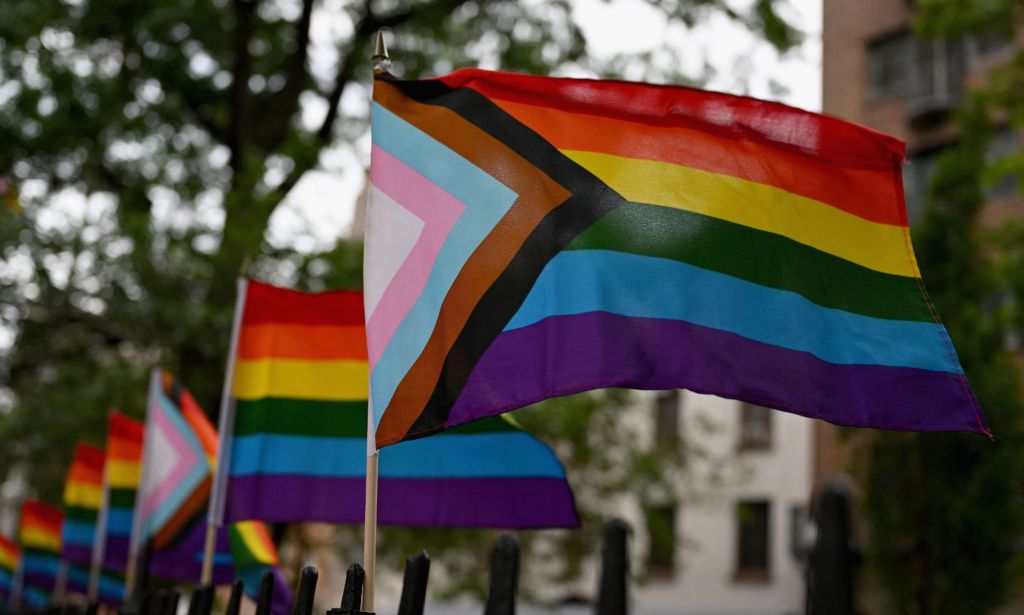Mauritius ends cruel anti-LGBTQ+ laws and makes gay sex legal

Gay sex has been decriminalised in Mauritius. (Ben Hasty/MediaNews Group/Reading Eagle via Getty Images)
It’s a momentous day for the LGBTQ+ community of Mauritius, as the East African country’s Supreme Court decriminalises same-sex relations.
The landmark ruling is particularly significant as many of Mauritius’ neighbouring countries remain deeply hostile towards the LGBTQ+ community and, in many cases punish gay sex with the death penalty.
The nation’s Supreme Court ruled in favour of the decriminalisation as part of the case of Ah Seek vs State of Mauritius, which saw activist Abdool Ridwan Firaas Ah Seek sue the state with the support of the Human Dignity Trust, to challenge section 250 (1) of the Mauritian Criminal Code 1838.

The outdated law, which had been introduced by the British during the colonial period, criminalised same-sex relations and threatened a maximum penalty of five years imprisonment.
In their ruling, Supreme Court judges asked: “…Are there any valid reasons for the State to discriminate against the plaintiff having sexual intercourse in the only way available to him?
“The present case concerns the most private and intimate aspects of the identity of homosexual men, namely the manner in which they have sexual intercourse. Accordingly, there must exist particularly serious reasons for the State to justifiably interfere with the manner in which homosexual men choose to have consensual sexual intercourse in private.”
The court also noted that the colonial-era law was not made to reflect Mauritian values, but “inherited as part of our colonial history from Britain.”
Commenting on the ruling, Téa Braun of the Human Dignity Trust stated: “This decision finally topples 185 years of state-sanctioned stigma against LGBT people in Mauritius and sends yet another important message to the remaining criminalizing countries in Africa and beyond: these laws must go.”
Human Dignity Trust also acknowledged that, while the law was “largely obsolete” and there was “no evidence of the law being enforced for many years in cases of consensual sexual activity between people of the same sex,” its “mere existence” constituted a “violation of human rights” that encouraged “further acts of discrimination.”
Plaintiff Ah Seek, who initiated the lawsuit back in 2019, also commented on the ruling, which came as an “enormous relief.”
He said: “From today, as a citizen and a human being, I am now free to love whoever I want to without fear. Above all, it also means that the next generations can fully and freely embrace their sexuality without fear of being arrested.
“This victory is undoubtedly a major step towards the full inclusion of our community in Mauritian society.”
Mauritius now joins African nations like South Africa, Angola, Botswana, Seychelles, and Mozambique in eradicating colonial-era provisions from their legal system.
Meanwhile, other African nations maintain some of the world’s strict anti-LGBTQ+ laws.
Of the continent’s 54 countries, only 22 have legalised homosexuality. In Mauritania, Somalia, and Nigeria the maximum penalty for homosexuality is capital punishment.

